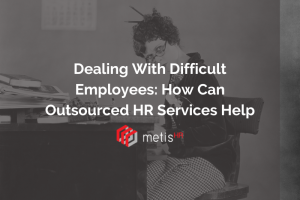
Resolving Workplace Harassment
Metis HR – Case Study This case study highlights how Metis HR effectively assisted an Engineering Company in addressing and successfully resolving workplace harassment. If
Articles

Metis HR – Case Study This case study highlights how Metis HR effectively assisted an Engineering Company in addressing and successfully resolving workplace harassment. If

“You can choose your friends but not your family,” Harper Lee wrote. The same is also true of our work colleagues. On average, we spend

The Covid-19 pandemic significantly shifted attitudes and expectations around remote working and, as a result, an increasing number of people now work remotely some or

Many workplaces use WhatsApp now as a tool for quick and easy communication. And whilst there can be many benefits to using WhatsApp instant messaging

There are many businesses in which employing under 18s can bring huge advantages, and many business owners want to be able to employ young people

Though autism is actually more common than many people think, there are still quite a number of misconceptions about it. Around 700,000 people in the
Employee rewards and recognitions come in many forms and are employed to various degrees of success.
We are asked by clients; How can I go about changing workplace culture? In a series of blogs, we are looking at how we can
To enable religious inclusion at work you should make it so everyone is comfortable enough to identify as following their religion without their religion impacting
Categories
Copyright © 2020 Metis HR Ltd. Registered Company No: 07554123. All Rights Reserved
Website by Thomas Cole Digital